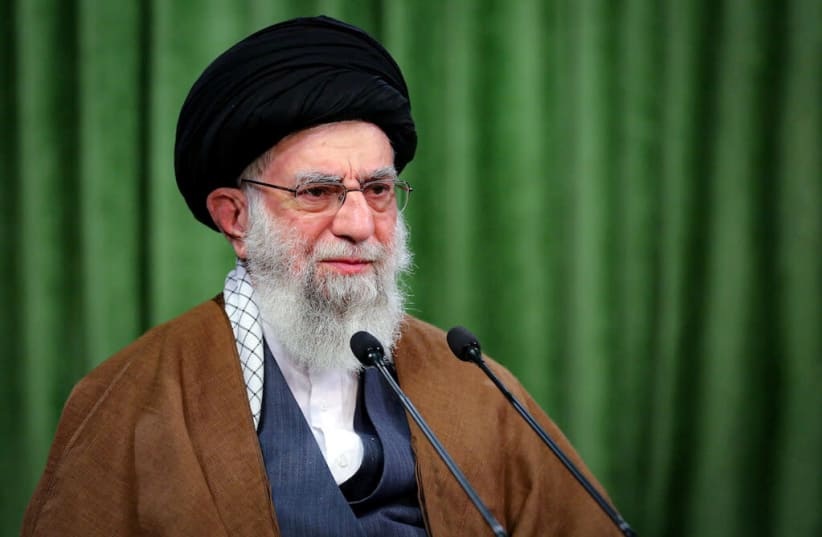There could still be a surprise new deal between the US, Iran and the world powers before the June 18 presidential election.
However, it has become more and more likely that Iran's Supreme Leader Ayatollah Ali Khamenei wants such a deal to wait until after the election, when a new hardliner president can take credit.
According to repeated US statements, though the first few rounds of negotiations with the Islamic Republic were needed to work through some hard issues, the recent rounds seem an exercise at drawing out the game by Khamenei.
The parties are due to meet in Vienna again on Wednesday.
However, Tehran has returned to its earliest position that the US must make all concessions in lifting sanctions first, with it only ceasing nuclear violations afterward.
There is no way the Biden administration will accept this position and Khamenei knows it.
Even Russia and China reject this position and support Washington’s formula of both parties making their concessions at the same time.
Yet, if Iran really had no interest in a deal, the negotiations probably would never have gotten this far and the IAEA inspections would not have been extended from May 21 until June 24.
June 24 is a fascinating new deadline which says a lot.
Usually, Iran has been dealing in round 30-day or 6-day numbers and has often announced it has run out of patience a few days early.
Adding on a few extra days seems almost blatantly to be leaving space for the next expected hardliner president to finish the negotiations in the days after June 18.
This would block the pragmatist camp of outgoing Iran President Hassan Rouhani from taking credit and potentially helping a reformist or pragmatist candidate at the polls.
But Tuesday’s ruling from the Guarding Council seemed to make the plan of waiting until after June 18 to finalize the deal even clearer.
In an unprecedented fashion even for the Islamic Republic’s problematic version of democracy, the council disqualified every non-hardliner candidate with a chance of winning.
This included Rouhani’s own vice-president and a former parliamentary speaker.
Apparently, Khamenei did not want to take any chances this time, ensuring his hand-picked candidate, Judiciary Chief Ebrahim Raisi, would win, after he lost in 2017 with around 40% of the vote.
It is also possible that Khamenei wants no deal at all or that with Raisi’s victory all but assured, he will not bless a nuclear deal even before election day.
